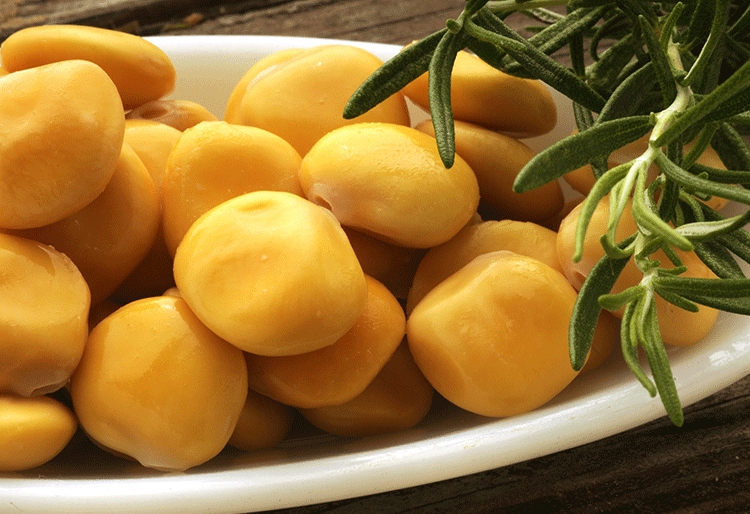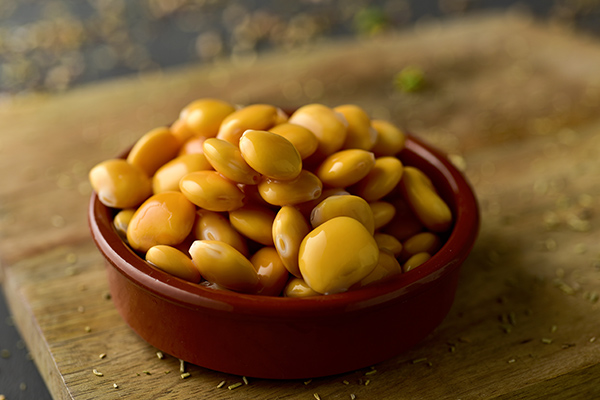The properties of lupins
Lupins, also known as tramussos or chochos, are a delicious snack and are a very beneficial healthy food due to their notable nutritional properties.
TRIED AND TESTED
Share

Lupins, or tramussos
They are not as well-known as other foods, such as soya, chia or quinoa, but just as any of these, lupins are considered a “superfood”, that is, a functional food whose consumption has health benefits.
The lupin is a yellow-coloured legume whose scientific name is Lupinus albus. In our country it is commonly known by different names: tramussos, chochos, white lupin, little white chickpea… Lupins are related to lentils, green beans, broad beans and chickpeas. In many areas of Spain, they are a common tapa and are served with drinks in many establishments. What many people are unaware of is that it is a very healthy snack.
Properties of the lupin
- Proteins
Lupins are an important source of proteins of vegetable origin. These proteins favour the growth of new cells, support the repair of tissue and maintain immune system function. Lupins are a highly recommended source of energy for sports people as they contain a high level of proteins and carbohydrates.
- Fibre
They are rich in fibre. Their high content of soluble and insoluble fibre makes them a great ally of the intestinal tract. They help to control weight as, when the insoluble fibre is ingested with liquids, it bulks up in the stomach and increases the feeling of fullness. In addition, the fibre is beneficial for reducing cholesterol levels.
- Vitamins
Lupins are an excellent source of vitamins B1, B2, B3, B6, B9 (folic acid) and Vitamin E, as well as containing all the essential amino acids indicated for the correct level of intellectual activity and for the immune system.
- Minerales
Also of note is their mineral content (iron, calcium, magnesium, phosphorus and zinc). Some of these minerals are important for healthy bones and for building cartilage.

Lupins for fighting diabetes
In recent years, numerous studies have shown the value of some components of these seeds in the fight against diabetes. In addition, these legumes have a lower glycaemic index than other similar legumes. Foods with low a glycaemic index slow down the absorption of sugar into the blood and help to balance glucose levels.
How can you incorporate lupins into your diet?
Normally, lupins are eaten in brine, but due to its high salt content, we do not recommend this for people with high blood pressure or heart problems.
Apart from the traditional snack, you can add them to salads or stews. Lupin flour is also used in the manufacture of other products, such as pizzas, bread, in baking and for making humus, pates and vegetable cheeses.






